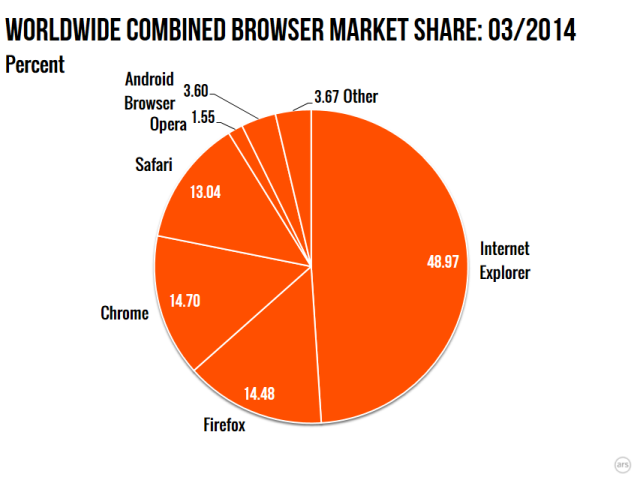
Windows XP will receive its last-ever security update on April 8 next week. After that, any flaws, no matter how severe, will not be patched by Microsoft, and one would be well advised to not let Windows XP machines anywhere near the public Internet as a result. In spite of this, 28 percent of Web users were still using the ancient operating system in March.
This seems unlikely to end well.
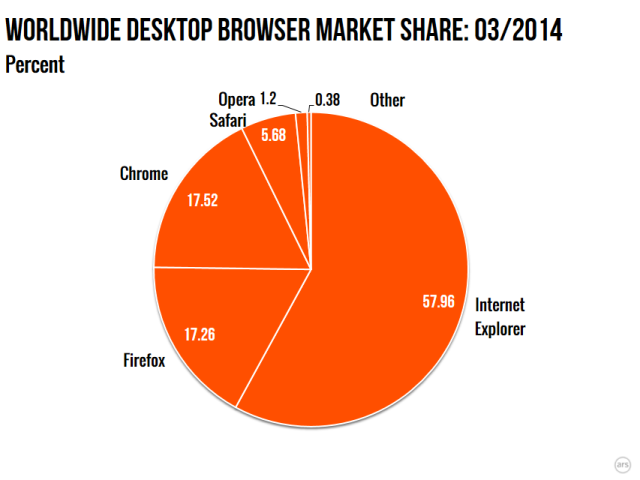
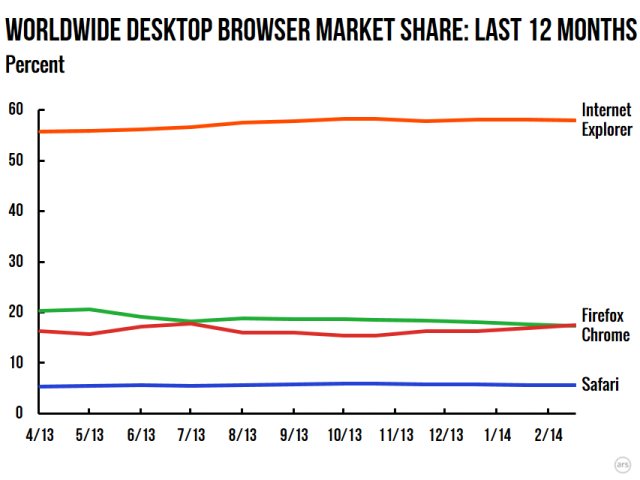
Chrome has come close to Firefox's market share a number of times over the years. However, the market share tracker we use, Net Market Share, has never seen Google's browser actually surpass Mozilla's—until now. In March, Chrome finally overtook Firefox to claim the second spot. Internet Explorer dropped a quarter of a point, Firefox dropped 0.42 points, and Chrome reaped the reward, gaining 0.68 points. Safari was essentially unchanged, up 0.01 points; likewise Opera, dropping 0.03 points.
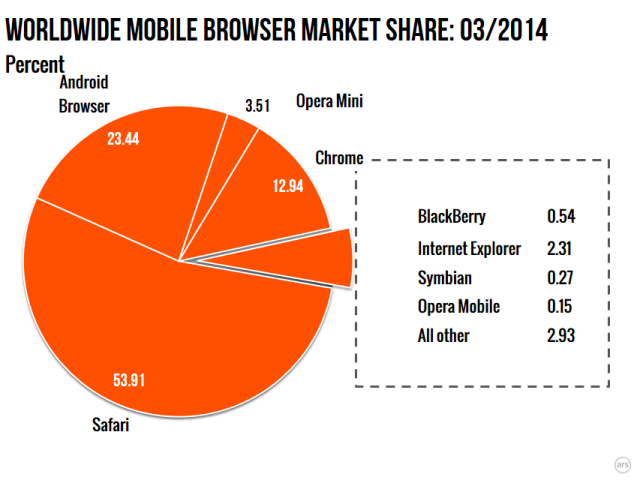
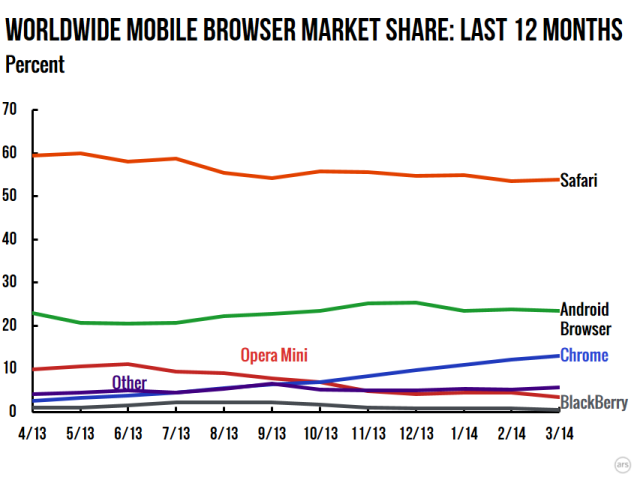
Safari gained 0.39 points, Android Browser lost 0.40 points, and Chrome picked up 0.85 points, as Google's migration toward its Chrome-branded Android browser continues. There were also some big movements among the also-rans; Opera Mini fell by 1.06 points, and Internet Explorer approached historic highs as it gained 0.61 points.
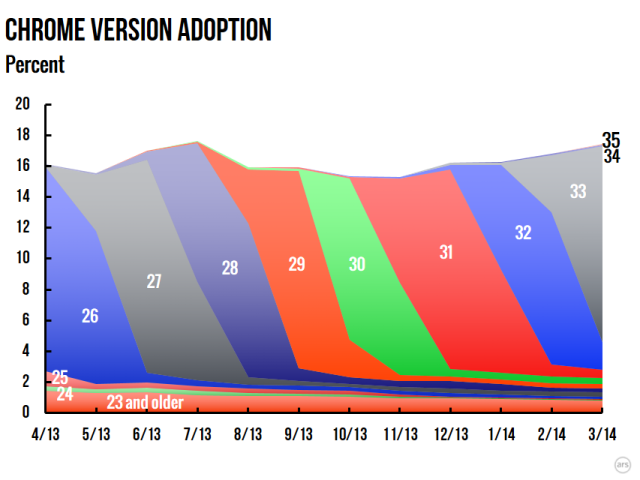
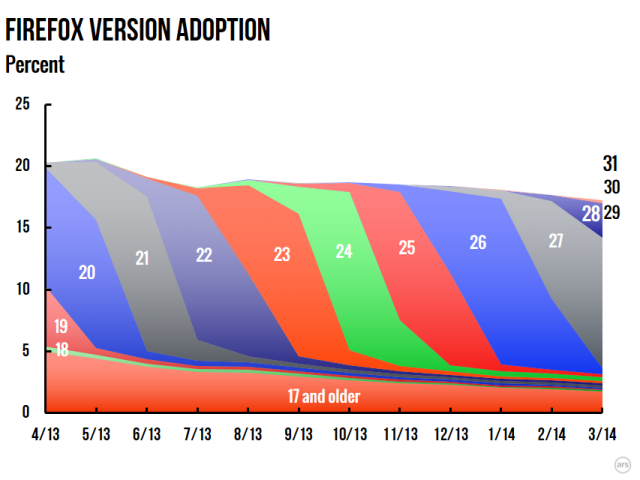
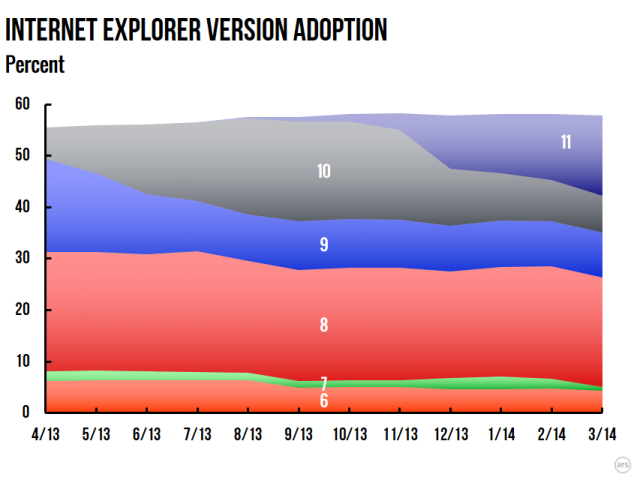
Internet Explorer 11's take-up has picked up substantially. If Internet Explorer 10 users continue to convert to version 11, it could even overtake Internet Explorer 8 to become the most widely used version of Microsoft's browser. The forthcoming update to Windows 8.1 may help stimulate this change, too, as it will include some changes to make the browser behave better when used with legacy intranet sites, many of which remain frustratingly tied to specific browser versions.
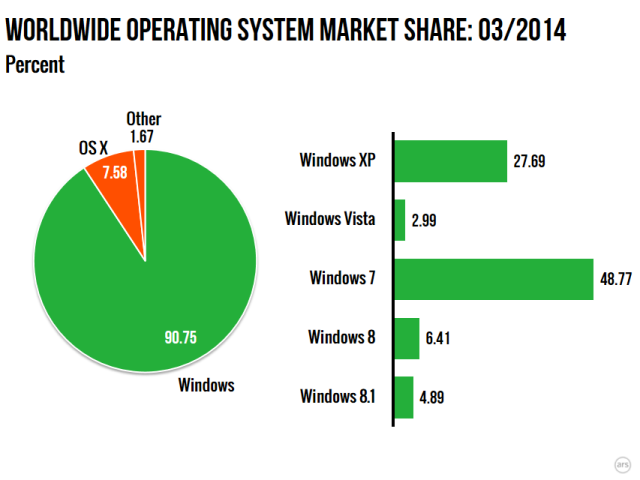
Windows 8.x was up a little in February, gaining 0.62 points, with most of the gains (0.59 points) going to Windows 8.1. But the real story is Windows XP. In spite of the imminent loss of support, it remains abundant, especially in China and other Asian markets. While firewalls and other measures will provide some degree of protection, widespread exploitation of these users by phishing and similar attacks remains highly probable. We don't know how the story is going to end, but we can't imagine it being good for anyone, with compromised machines liable to be recruited into botnets and spam networks. This writer would not be the least bit surprised if the first wave of exploits for the obsolete operating system materialized on or about April 9.
Windows XP users are being warned about the loss of support with a dialog box, but much as Microsoft and the PC industry might hope otherwise, this isn't going to result in a massive burst of last-minute upgrades.
reader comments
157